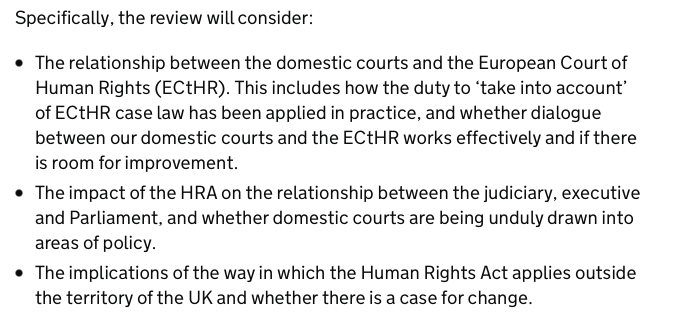A short personal reflection on what happened yesterday.
I wanted to wait a bit before saying this as I think yesterday was for those who experienced the sharpest end of the disastrous breakdown between the Labour Party and Jewish people during the past 5 years.

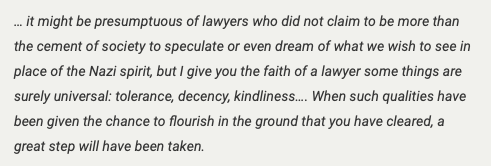
More from Adam Wagner
A short thread on why I am dubious that the government can lawfully impose charges on travellers entering the UK for quarantine and testing (proposed at £1,750 and £210)
1/
The UK has signed up to the International Health Regulations (IHA) 2005. These therefore create binding international legal obligations on the UK.
The IHA explicitly prevent charging for travellers' quarantine or medical examinations.
https://t.co/n4oWE8x5Vg /2
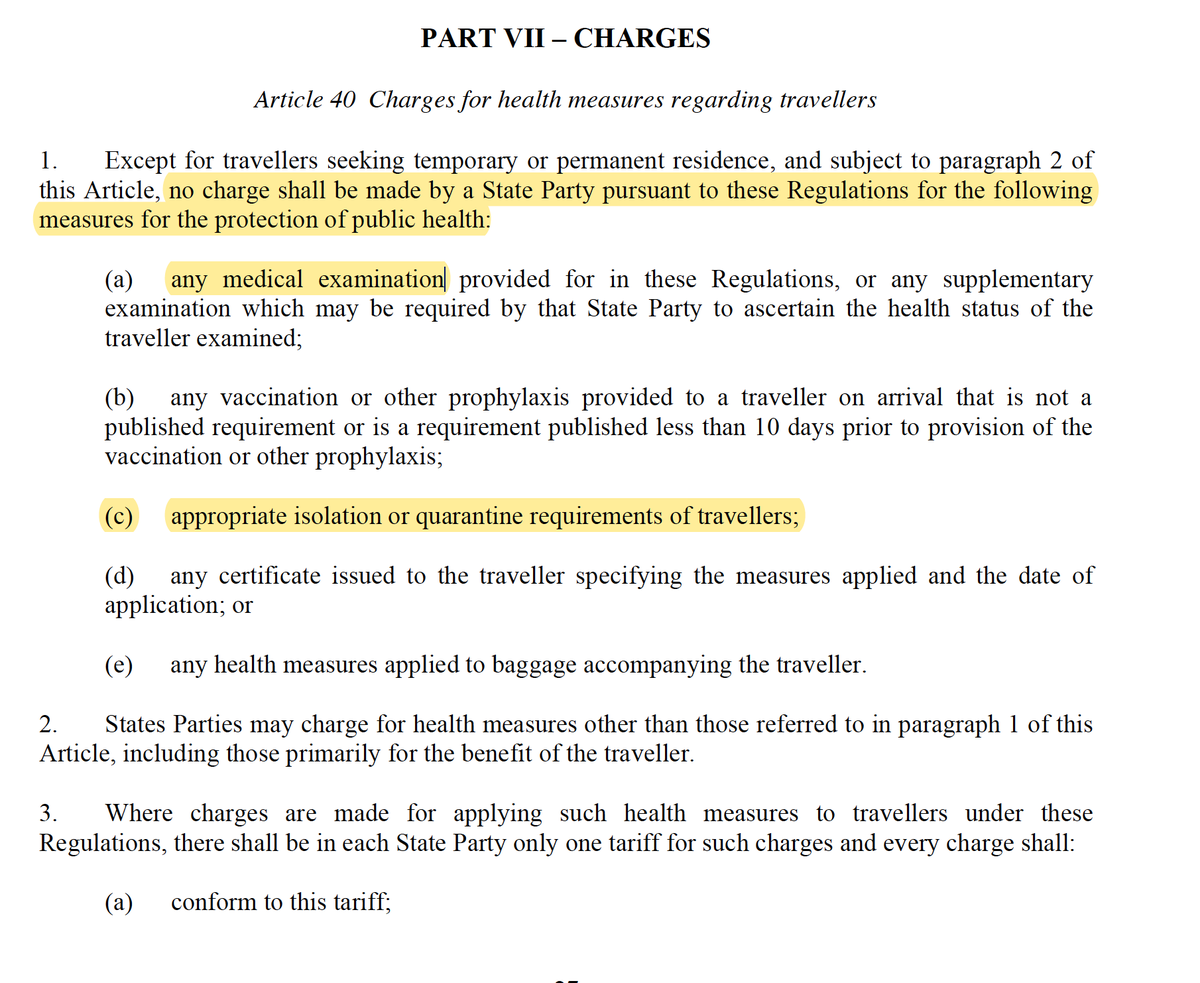
International law is not actionable in a UK court unless it has been implemented in law.
But it can be used as an aide to interpretation where a statute isn't clear as to what powers it grants.
See e.g. Lord Bingham in A v SSHD https://t.co/RXmib1qGYD
/3

The Quarantine regulations will, I assume, be made under section 45B of the Public Health (Control of Disease) Act 1984
https://t.co/54L4lHGMEr
/4
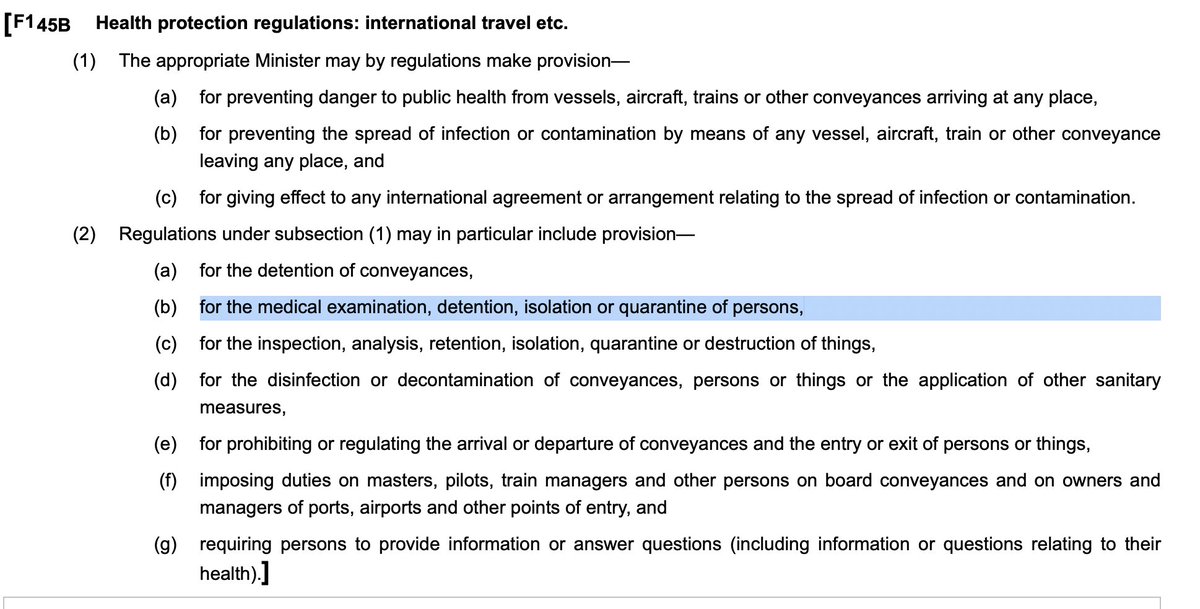
That gives pretty broad powers but I can't see any power to charge for quarantine. Perhaps it will be inferred from somewhere else in Part 2A?
But...
1/
The UK has signed up to the International Health Regulations (IHA) 2005. These therefore create binding international legal obligations on the UK.
The IHA explicitly prevent charging for travellers' quarantine or medical examinations.
https://t.co/n4oWE8x5Vg /2

International law is not actionable in a UK court unless it has been implemented in law.
But it can be used as an aide to interpretation where a statute isn't clear as to what powers it grants.
See e.g. Lord Bingham in A v SSHD https://t.co/RXmib1qGYD
/3

The Quarantine regulations will, I assume, be made under section 45B of the Public Health (Control of Disease) Act 1984
https://t.co/54L4lHGMEr
/4

That gives pretty broad powers but I can't see any power to charge for quarantine. Perhaps it will be inferred from somewhere else in Part 2A?
But...
A year ago, the idea that you could close every restaurant, café and pub in the capital without a Parliamentary vote or even a debate would have been unthinkable. Today we have allowed government by executive decree and it now seems normal. Covid lawmaking has corroded democracy
To explain: since March, the government has used the Public Health (Control of Diseases) Act 1984 to pass lockdown laws - over 60 (I have listed them here https://t.co/5Z1p3gVjbX).
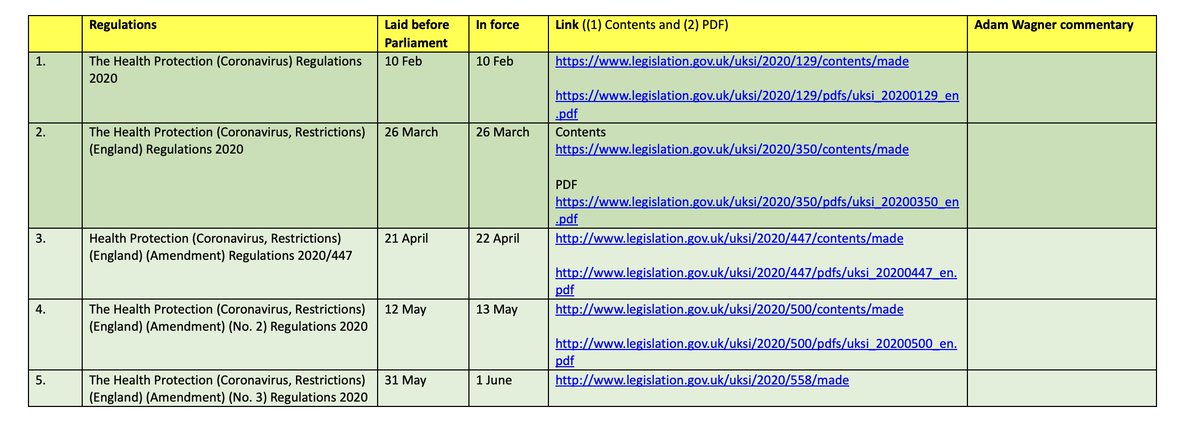
The lockdown laws have imposed stringent restrictions on movement, freedom of association, family life, religion etc. But each and every lockdown law passed has used the super emergency procedure which allows the government to pass them without a parliamentary vote for 28 days
The government did this for months before MPs revolted at which point it promised to put any major changes before parliament first. It has done this since the three tiers in mid-October.
BUT...
(1) The govt is still only giving parliament about 12 hours to consider laws and the vote is a simple yes or no
(2) Changes to tiered areas are not considered major changes so these don't go to a vote until 28 days later by which time it has usually changed.
To explain: since March, the government has used the Public Health (Control of Diseases) Act 1984 to pass lockdown laws - over 60 (I have listed them here https://t.co/5Z1p3gVjbX).

The lockdown laws have imposed stringent restrictions on movement, freedom of association, family life, religion etc. But each and every lockdown law passed has used the super emergency procedure which allows the government to pass them without a parliamentary vote for 28 days
The government did this for months before MPs revolted at which point it promised to put any major changes before parliament first. It has done this since the three tiers in mid-October.
BUT...
(1) The govt is still only giving parliament about 12 hours to consider laws and the vote is a simple yes or no
(2) Changes to tiered areas are not considered major changes so these don't go to a vote until 28 days later by which time it has usually changed.
🚨New lockdown regulations just published, in force tomorrow
The Health Protection (Coronavirus, Restrictions) (No. 3) and (All Tiers) (England) (Amendment) Regulations 2021
https://t.co/L5jwlTDaIE
(Thread)
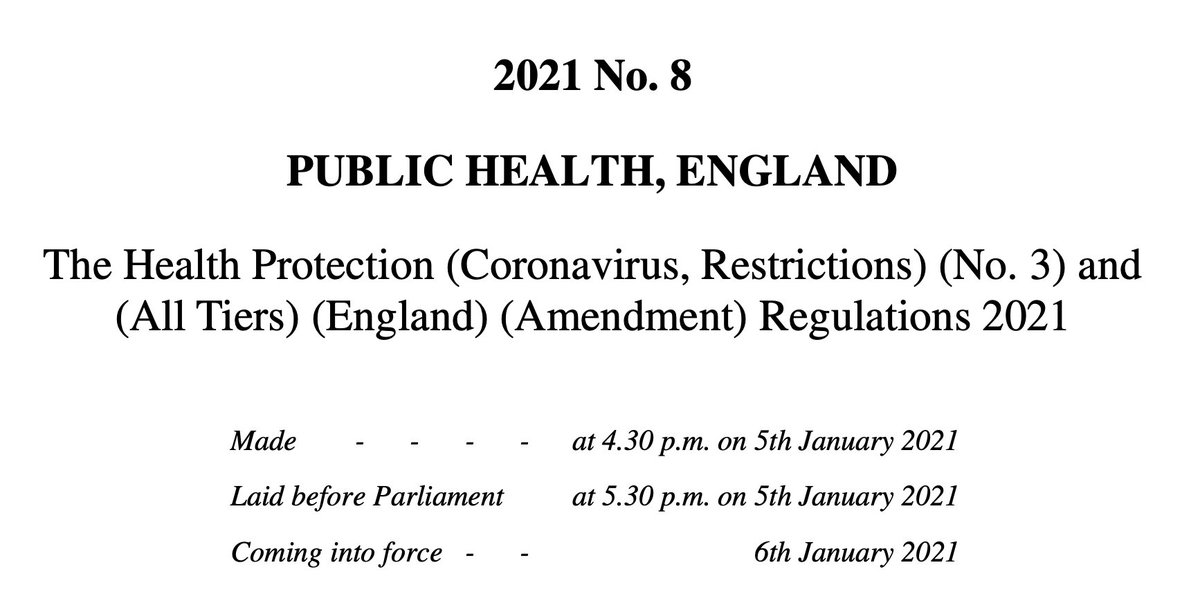
These are not a new set of regulations: they are amendments an old set of regulations
Which we thought were gone! But they are back
Welcome back No.3 regulations
A quick thing before we continue!
I have been analysing these laws for free for 9 months now - if you want to say thanks and have a few £ to spare please give to my @LawCentres fundraiser
They give free legal advice to people who need it
They also amend the All Tiers regulations
Oh god it's all amendments by paragraph references
Basically all of England now in Tier 4 and Tier 4 is amended but not by a huge amount
This really is a terrible way to make laws on the fly - who can possibly understand it?!
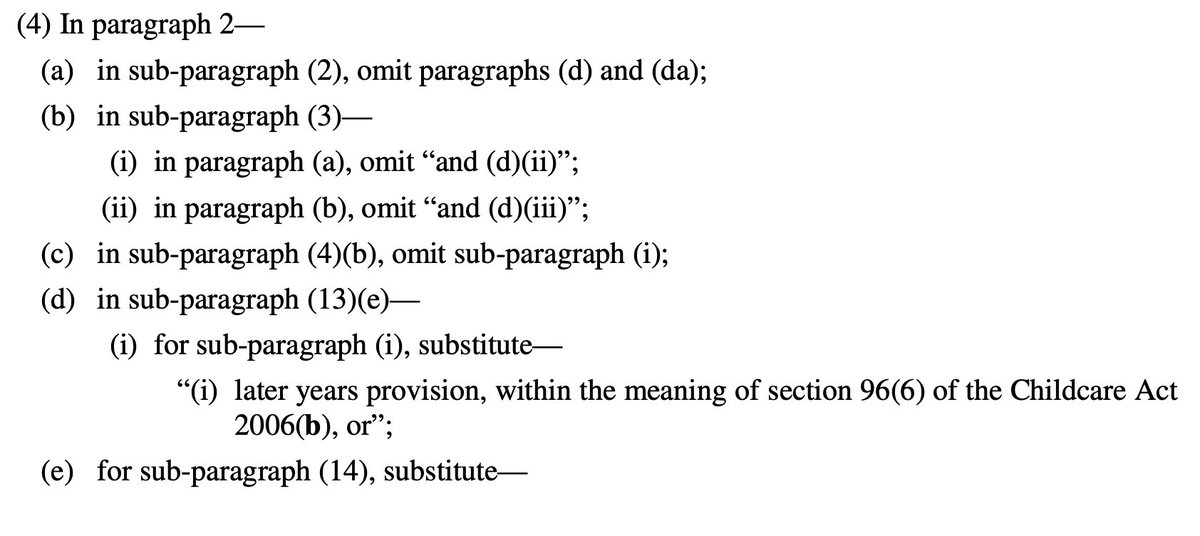
So, to explain, you need 2 documents open if you want to understand what is going on:
All Tiers regulations (Tiers 1-4, 2 December as amended) https://t.co/IraPQ112ak
And amendments https://t.co/L5jwlTDaIE
No sensible way of doing except by track changes, on it now, back soon
The Health Protection (Coronavirus, Restrictions) (No. 3) and (All Tiers) (England) (Amendment) Regulations 2021
https://t.co/L5jwlTDaIE
(Thread)

These are not a new set of regulations: they are amendments an old set of regulations
Which we thought were gone! But they are back
Welcome back No.3 regulations
A quick thing before we continue!
I have been analysing these laws for free for 9 months now - if you want to say thanks and have a few £ to spare please give to my @LawCentres fundraiser
They give free legal advice to people who need it
They also amend the All Tiers regulations
Oh god it's all amendments by paragraph references
Basically all of England now in Tier 4 and Tier 4 is amended but not by a huge amount
This really is a terrible way to make laws on the fly - who can possibly understand it?!

So, to explain, you need 2 documents open if you want to understand what is going on:
All Tiers regulations (Tiers 1-4, 2 December as amended) https://t.co/IraPQ112ak
And amendments https://t.co/L5jwlTDaIE
No sensible way of doing except by track changes, on it now, back soon
More from Uk
You May Also Like
So friends here is the thread on the recommended pathway for new entrants in the stock market.
Here I will share what I believe are essentials for anybody who is interested in stock markets and the resources to learn them, its from my experience and by no means exhaustive..
First the very basic : The Dow theory, Everybody must have basic understanding of it and must learn to observe High Highs, Higher Lows, Lower Highs and Lowers lows on charts and their
Even those who are more inclined towards fundamental side can also benefit from Dow theory, as it can hint start & end of Bull/Bear runs thereby indication entry and exits.
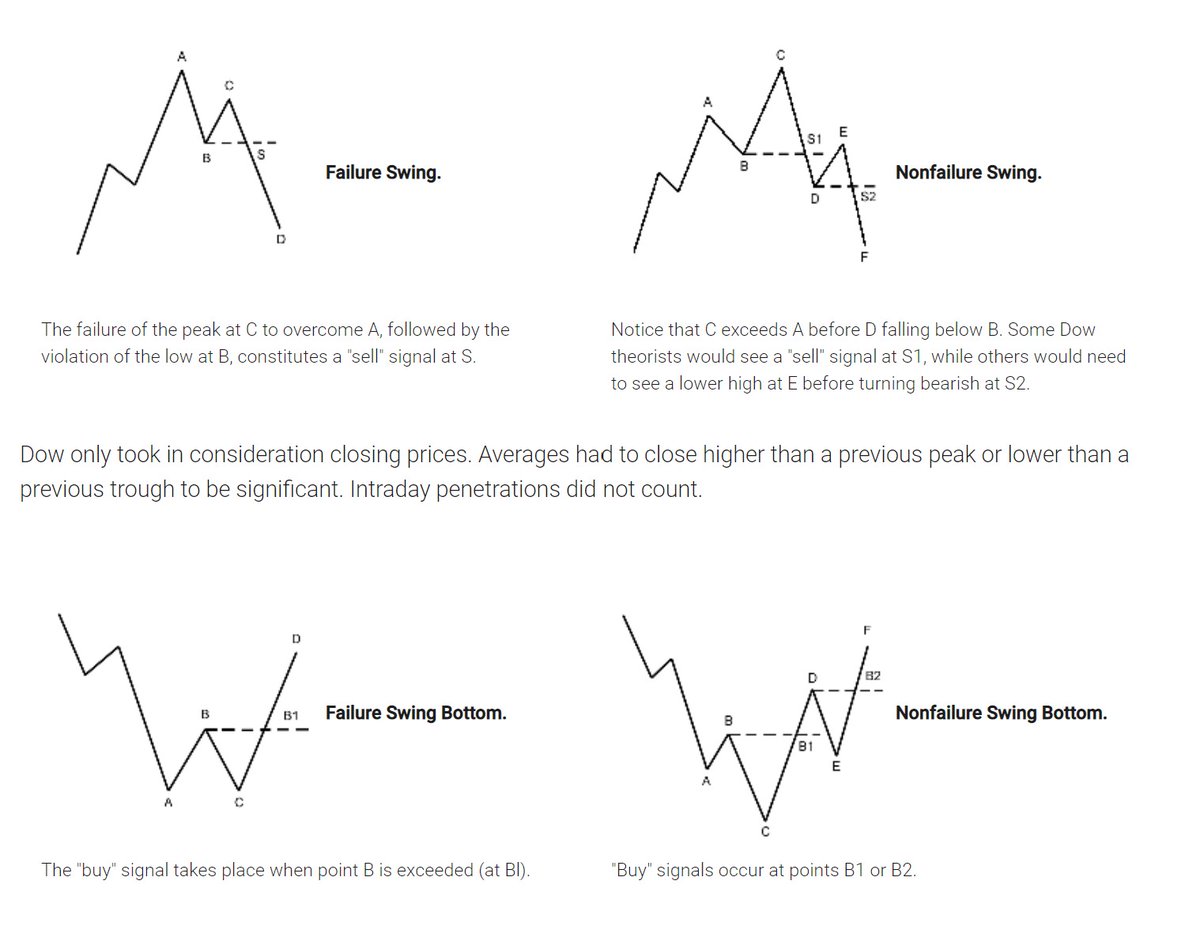
Next basic is Wyckoff's Theory. It tells how accumulation and distribution happens with regularity and how the market actually
Dow theory is old but
Here I will share what I believe are essentials for anybody who is interested in stock markets and the resources to learn them, its from my experience and by no means exhaustive..
First the very basic : The Dow theory, Everybody must have basic understanding of it and must learn to observe High Highs, Higher Lows, Lower Highs and Lowers lows on charts and their
Even those who are more inclined towards fundamental side can also benefit from Dow theory, as it can hint start & end of Bull/Bear runs thereby indication entry and exits.

Next basic is Wyckoff's Theory. It tells how accumulation and distribution happens with regularity and how the market actually
Dow theory is old but
Old is Gold....
— Professor (@DillikiBiili) January 23, 2020
this Bharti Airtel chart is a true copy of the Wyckoff Pattern propounded in 1931....... pic.twitter.com/tQ1PNebq7d

